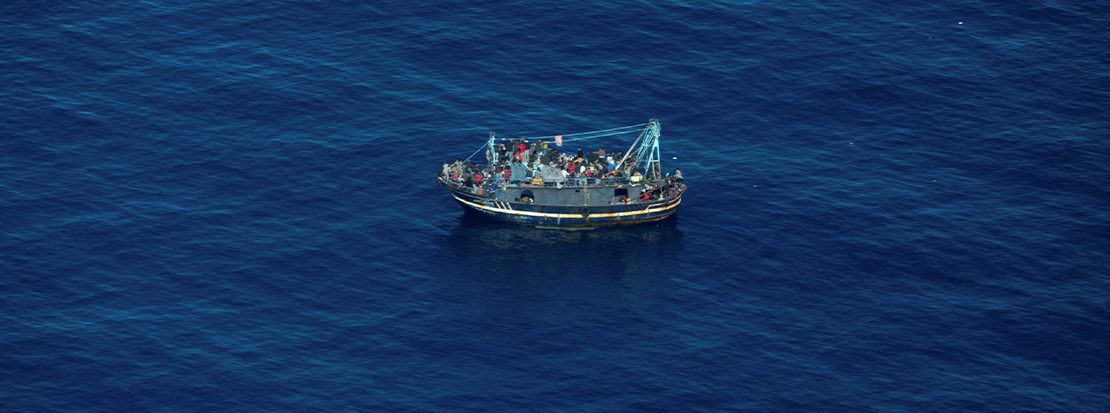Over the last week, we’ve seen multiple tragedies unfold in the ocean. As search efforts continue for the Titanic tourism submersible that went missing off the coast of Newfoundland, Canada – on the other side of the world, Pakistan is mourning the death of more than 300 refugees who drowned in the Mediterranean Sea, after the fishing trawler carrying them capsized near the Greek coast.
Possibly “the worst tragedy ever” in the Mediterranean Sea, hundreds more are still missing and the true toll of the disaster is still unclear. The overcrowded boat was travelling from the coastal city of Tobruk in Libya to Italy when it capsized.
According to CNN, the chairman of Pakistan’s Senate, Muhammad Sadiq Sanjrani, disclosed the numbers in a statement Sunday, sending condolences to grieving families of the dead.
“Our thoughts and prayers are with you, and we pray that the departed souls find eternal peace,” Sanjrani said. “This devastating incident underscores the urgent need to address and condemn the abhorrent act of illegal human trafficking.”
Pakistan is currently facing its worst economic crisis in decades, further compounded by political turmoil, which has complicated efforts to secure financial assistance from the International Monetary Fund. The country has experienced stagnant growth and soaring inflation in the past year. Importing essential food products has been challenging, leading to tragic incidents such as deadly stampedes at distribution centres. The increasing number of Pakistanis embarking on dangerous routes to Europe in search of better opportunities has had a profound impact on the nation.
In recent years, the Mediterranean Sea has tragically transformed into a haunting graveyard for desperate refugees seeking. The perilous journey across this ancient sea has become synonymous with danger, uncertainty, and heartbreaking loss. Since 2014, over 26,000 people have died or gone missing crossing the Mediterranean Sea. Most of these deaths or disappearances, over 20,000, occurred in the Central Mediterranean, considered among the deadliest migration routes in the world.
The sea, geographically situated between Africa, Europe, and the Middle East, has long served as a gateway for migrants seeking asylum or a better future in Europe. However, combined with the exploitative practices of human smugglers, it has turned this vast expanse of water into a treacherous path of desperation and despair. These smugglers exploit vulnerable individuals, subjecting them to dangerous conditions and overcrowded boats that are ill-equipped to withstand the voyage. Many of these fragile vessels do not reach their intended destinations, succumbing to harsh weather conditions, rough seas, or fatal accidents.
Global bodies such as the International Organization for Migration (IOM) and the UN Refugee Agency (UNHCR) called for “urgent and decisive action” to prevent further deaths in the Mediterranean and emphasized “the duty to rescue people in distress at sea without delay.”
As the developments unfold, many have expressed their disappointment with International authorities for their slow response and the media for their lack of coverage regarding the incident. Especially as the Titanic submersible’s rescue efforts take over social media timelines – many believe that the Mediterranean crisis, despite its large scale is not getting as much attention due to public attitudes towards refugees and migrants.
nothing says "we live in a dystopia" more than the response to 5 rich dudes doing ocean tourism vs. possibly the greatest tragedy in Mediterranean sea history
— Cicely Belle Blain (@cicelybelle_xo) June 21, 2023
Some are also blaming Greek authorities for how they handled the crisis earlier this week.
As stories of overcrowded boats, smugglers, and devastating shipwrecks continue to emerge, the international community is left grappling with the deepening humanitarian crisis. This devastating event highlights the urgency of addressing the root causes and providing a more humane response to the global refugee crisis.





Warning: Use of undefined constant ‘url’ - assumed '‘url’' (this will throw an Error in a future version of PHP) in /var/www/html/wp-content/themes/theissue/functions.php on line 143